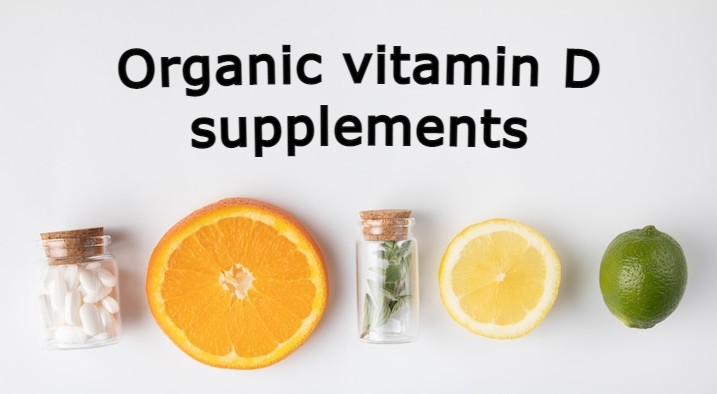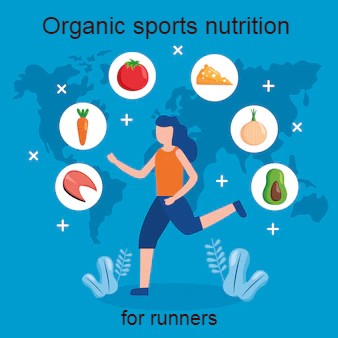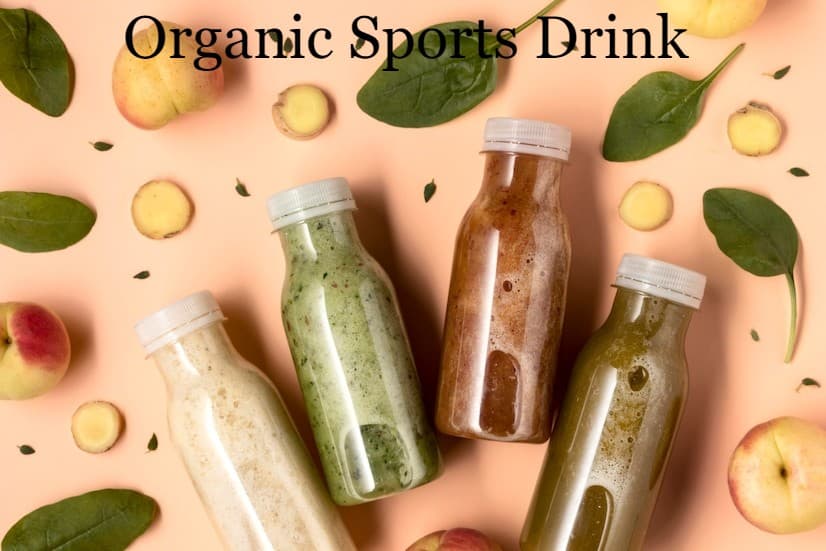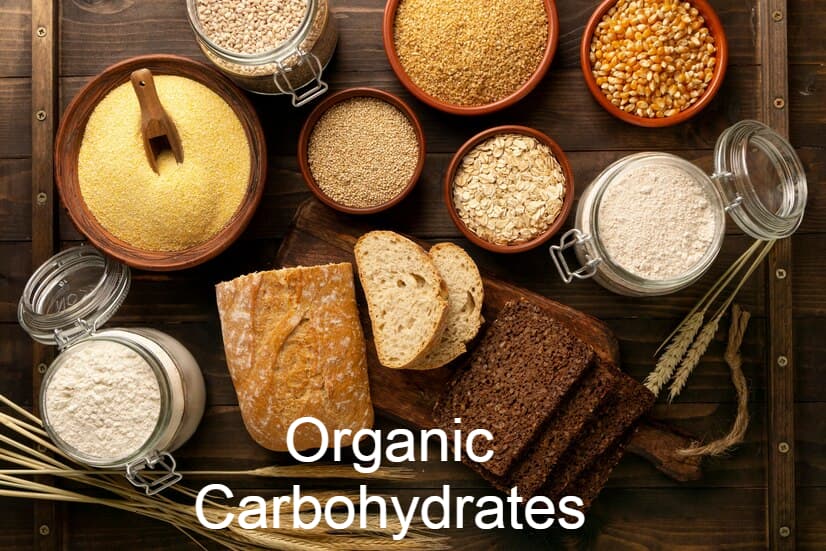Organic Sports Nutrition for Vegan Athletes
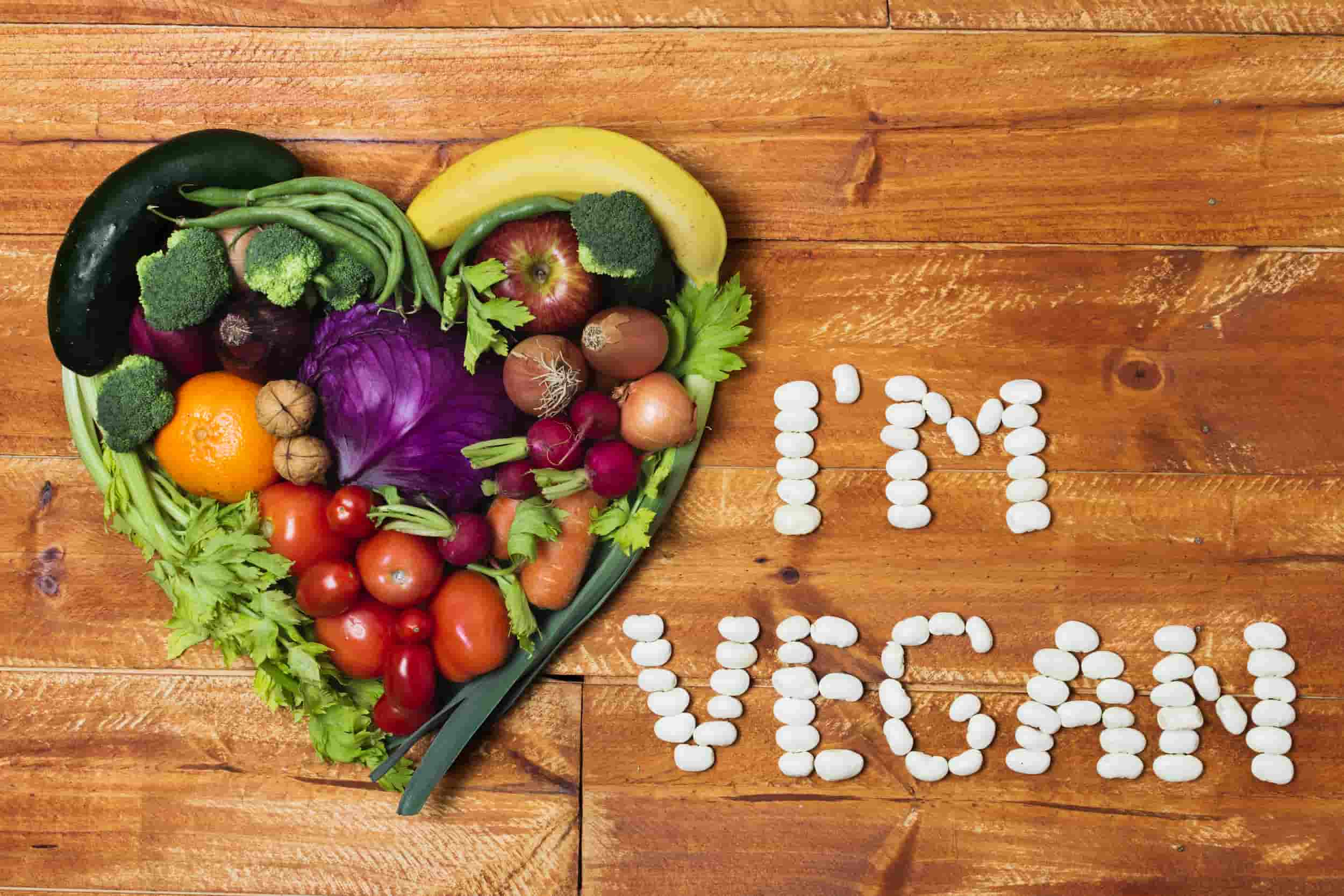
Hello, colleagues and fitness fans! Are you a vegetarian with a passion for sports and looking for the perfect fuel to power your workouts? we dive headfirst into the world of organic sports nutrition designed specifically for vegan athletes. Whether you’re a runner, weightlifter, or yogi, this is the ultimate guide to optimizing your performance while staying true to a plant-based lifestyle. So if you’re ready to take your athletic game to the next level, keep reading!
Now, I know what you’re thinking: “Can a vegan diet really provide all the nutrients and energy for my intense physical activity?” The answer is an unequivocal YES! Plant-based nutrition has come a long way, and with the right knowledge and choices, you can achieve significant results without compromising your principles. In this blog post, we’ll explore the key ingredients in organic sports nutrition that will not only support your athletic efforts, but also nourish your body in a healthy way.
So, whether you’re a seasoned vegan athlete or just starting to embrace a plant-based lifestyle, join me on this journey to discover the wonderful world of organic sports nutrition. From plant-based foods packed with protein to natural energy boosters and restoratives, we’ve got it all covered. Get ready to unlock your full potential on the field, in the gym, or wherever your athletic adventures take you. Stay tuned to the end of the blog and you will be armed with valuable tips and advice to start your fitness journey with confidence and vitality.
| Fact | Description |
|---|---|
| Plant-Based Protein | Vegan athletes can obtain high-quality protein from sources like lentils, quinoa, tofu, tempeh, and hemp seeds. These provide essential amino acids for muscle repair. |
| Natural Energy Boosters | Organic sports nutrition includes energizing foods like bananas, dates, chia seeds, and beetroot juice, which offer sustained energy without relying on artificial stimulants. |
| Hydration is Key | Staying hydrated is crucial for optimal performance. Coconut water, watermelon, and herbal teas are excellent choices for replenishing electrolytes and maintaining hydration. |
| Essential Nutrients | Vegan athletes should ensure sufficient intake of vitamins B12, D, and iron. Nutritional yeast, fortified plant milk, sun exposure, and leafy greens can provide these nutrients. |
| Pre- and Post-Workout Fuel | Whole grain carbohydrates, such as brown rice and quinoa, combined with plant-based protein sources, like chickpeas and edamame, can fuel workouts and aid in recovery. |
| Superfoods for Recovery | Incorporating superfoods like spirulina, turmeric, and tart cherries can help reduce inflammation, support muscle recovery, and enhance overall athletic performance. |
| Mindful Supplementation | Vegan athletes may consider supplements like vitamin B12, omega-3 fatty acids (from algae oil), and creatine to address specific nutrient needs and enhance performance safely. |
| Organic Certification | Choosing organic products ensures they are free from synthetic pesticides, GMOs, and harmful chemicals, offering a cleaner and more sustainable approach to sports nutrition. |
Organic sports nutrition for vegan athletes represents a growing movement within the athletic community, as more and more individuals are recognizing the numerous benefits of incorporating organic and plant-based diets into their training regimens. Athletes around the world are embracing the concept of organic sports nutrition, not only for its potential to enhance their athletic performance but also for the positive impact it has on their overall health and well-being. The popularity of organic and plant-based diets among athletes is fueled by the realization that nutrition plays a critical role in optimizing performance, and organic food offers a wealth of advantages in this regard. Organic produce, such as fruits, vegetables, and grains, is known to be richer in essential vitamins, minerals, and antioxidants, providing athletes with the necessary nutrients to support their energy levels, recovery, and immune function. Moreover, organic food reduces athletes’ exposure to potentially harmful substances, such as pesticide residues and GMOs commonly found in conventionally farmed products. By choosing organic options, athletes can prioritize cleaner, toxin-free sources of nutrition, thereby supporting their long-term health and minimizing the risk of ingesting unwanted chemicals. Additionally, organic food tends to be free from synthetic additives and preservatives, making it easier for the body to digest and absorb the nutrients effectively. By embracing organic sports nutrition, vegan athletes can unlock the potential of plant-based eating to fuel their performance naturally, while also promoting a sustainable and compassionate approach to their diet.
Understanding Organic Sports Nutrition:
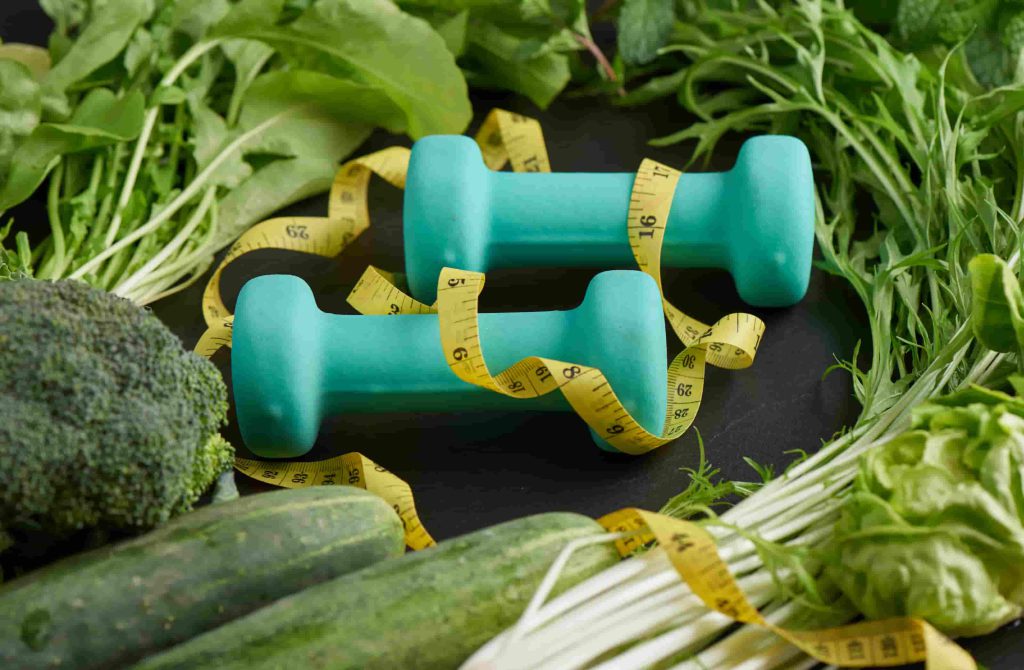
Organic food is food that is produced using organic farming methods, which prioritize the use of natural and sustainable practices. Organic farming focuses on maintaining the health and balance of ecosystems by avoiding the use of synthetic fertilizers, pesticides, genetically modified organisms (GMOs), and irradiation. Instead, organic farmers rely on techniques such as crop rotation, composting, and biological pest control to promote soil fertility, biodiversity, and environmental sustainability.
The principles behind organic farming revolve around the belief that nature is best suited to regulate itself and that human intervention should aim to work in harmony with natural processes. Organic farmers prioritize the use of renewable resources and aim to minimize the negative impact on the environment. They strive to create a holistic system that promotes the health and well-being of the soil, plants, animals, and people involved in the food production process.
One crucial aspect of organic food is organic certification and labeling. Organic certification is a rigorous process conducted by authorized bodies that verify whether a farm or food product meets specific organic standards. These standards may vary slightly between countries, but they generally encompass criteria related to soil management, pest and weed control, animal welfare, and the avoidance of synthetic inputs. Organic certification helps consumers make informed choices by providing transparency and assurance that the food they purchase has been produced in accordance with organic principles.
The organic label serves as a visual representation of the organic certification process. It enables consumers to identify and differentiate organic products from conventionally produced ones. Organic labeling typically includes the use of a specific logo or seal, indicating that the product meets the required standards. This labeling allows individuals who prioritize organic food choices to make informed decisions and support sustainable and environmentally-friendly farming practices.
When it comes to sports nutrition, understanding organic food becomes particularly relevant. Organic sports nutrition focuses on providing athletes with high-quality, nutrient-dense, and clean fuel for optimal performance and recovery. By consuming organic foods, athletes can avoid potential exposure to synthetic pesticides, hormones, antibiotics, and other substances that may be present in conventionally produced foods. Organic sports nutrition aims to support not only physical performance but also overall health and well-being.
In summary, organic food is produced using organic farming methods that prioritize natural and sustainable practices. Organic certification and labeling play crucial roles in ensuring transparency and allowing consumers to make informed choices. Organic sports nutrition emphasizes clean and nutrient-dense fuel for athletes, promoting optimal performance while supporting overall health and environmental sustainability.
B. The benefits of organic food for athletes:

Higher nutrient content:
One of the key benefits of organic food for athletes lies in its higher nutrient content. Organic fruits, vegetables, and grains have been found to be richer in essential vitamins, minerals, and antioxidants compared to their conventionally grown counterparts. These nutrient powerhouses are vital for athletes as they support optimal athletic performance, aid in faster recovery, and boost immune function. Essential vitamins and minerals, such as vitamin C, vitamin E, magnesium, and potassium, play crucial roles in energy production, muscle function, and electrolyte balance. Antioxidants found in organic food, such as polyphenols and flavonoids, help combat oxidative stress induced by intense physical activity, reducing inflammation and supporting the body’s ability to recover. By consuming organic food, athletes can ensure that they are maximizing their nutrient intake and providing their bodies with the necessary fuel to perform at their best.
Reduced exposure to toxins:
Reduced exposure to toxins is another significant benefit of consuming organic food for athletes. Conventional farming practices often involve the use of pesticides, herbicides, and synthetic fertilizers, which can leave behind residue on the produce. These chemical residues have been linked to potential health risks, including hormone disruption, immune system suppression, and even certain types of cancers. In addition, genetically modified organisms (GMOs) are prevalent in conventional farming, where crops are genetically engineered to withstand pests and herbicides. While the long-term effects of GMOs are still being studied, some athletes prefer to minimize their consumption due to concerns about their impact on health and performance. Organic food, on the other hand, offers a solution by minimizing exposure to these harmful substances. Organic farming practices prohibit the use of synthetic pesticides and GMOs, promoting the use of natural alternatives, crop rotation, and biodiversity to maintain soil fertility and control pests. By choosing organic options, athletes can prioritize cleaner, pesticide-free, and GMO-free sources of nutrition, reducing their exposure to potentially harmful substances and supporting their long-term health and well-being.
Improved digestion and absorption are additional advantages of consuming organic food for athletes. Organic food is free from synthetic additives, artificial flavors, and preservatives commonly found in processed foods. By eliminating these additives, organic food offers a cleaner and more natural source of nutrition. The absence of synthetic additives means that the body can more easily process and absorb the nutrients present in organic food. This improved digestion and absorption can have a significant impact on athletic performance and recovery. When athletes consume organic food, their bodies can efficiently extract the necessary nutrients, such as carbohydrates, proteins, and fats, that are essential for energy production, muscle repair, and overall recovery. Furthermore, organic food tends to be less processed, retaining its natural fiber content. Adequate fiber intake supports healthy digestion and can prevent issues like constipation and gastrointestinal discomfort, which can hinder athletic performance. By opting for organic food, athletes can optimize their digestion and absorption of nutrients, promoting better overall health and enhancing their ability to perform at their best.
B. Meeting nutritional requirements on a vegan diet:

Protein sources:
Meeting nutritional requirements on a vegan diet is crucial for vegan athletes to ensure optimal performance and overall health. Protein, one of the essential macronutrients, can be obtained from various plant-based sources. Legumes, such as lentils, chickpeas, and beans, are excellent protein-rich options. Additionally, tofu, tempeh, and seitan are valuable sources of plant-based protein that can be incorporated into a vegan athlete’s diet. It is important for vegan athletes to combine different plant-based protein sources to ensure a complete amino acid profile. While plant-based proteins may be slightly lower in certain essential amino acids compared to animal-based proteins, combining different plant-based protein sources can provide a balanced and complete range of amino acids. In addition to protein, there are several key nutrients that may require special attention for vegan athletes. Vitamin B12, primarily found in animal products, is essential for nerve function and the production of red blood cells. Vegan athletes should consider supplementation or fortified foods to meet their vitamin B12 needs. Iron is another nutrient that may need attention, as plant-based iron sources (e.g., lentils, spinach) may be less readily absorbed than animal-based iron. Combining iron-rich plant foods with sources of vitamin C can enhance iron absorption. Omega-3 fatty acids, important for brain and heart health, can be obtained from plant-based sources like flaxseeds, chia seeds, and walnuts, or through supplementation with algae-based omega-3 supplements. Lastly, calcium, crucial for bone health, can be obtained from plant-based sources such as kale, broccoli, tofu, and fortified plant milk. It is essential for vegan athletes to be mindful of their nutrient intake and consider consulting with a registered dietitian or healthcare professional to ensure they are meeting their nutritional needs through a well-planned vegan diet.
III. Incorporating Organic Food into a Vegan Athlete’s Diet:
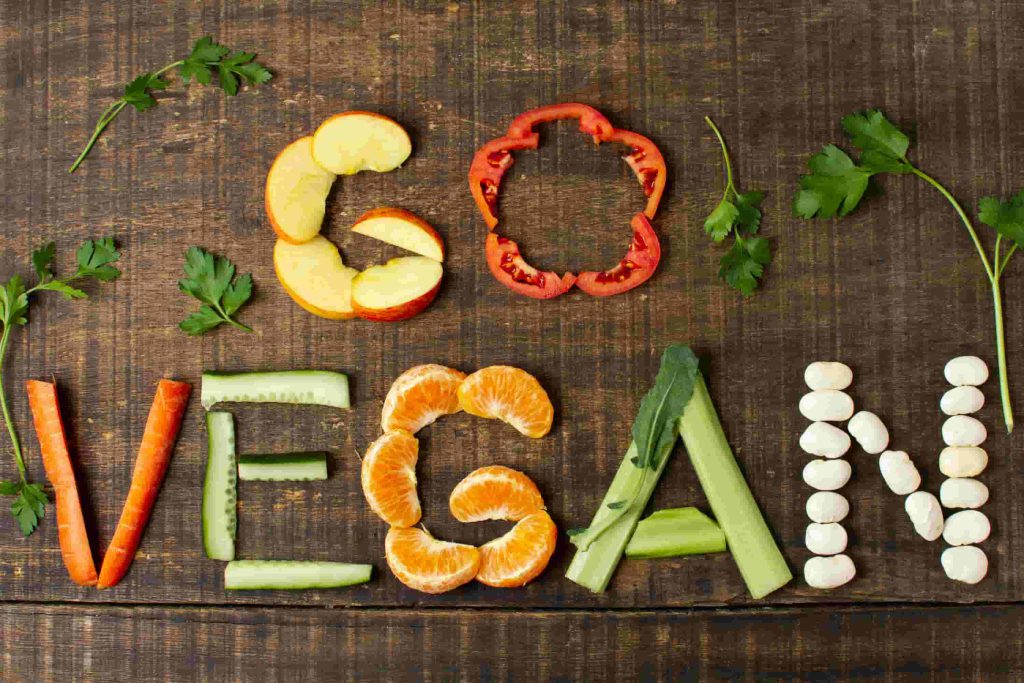
A. Choosing organic produce:
Incorporating organic food into a vegan athlete’s diet is a great way to enhance both the quality and sustainability of their nutrition. When it comes to choosing organic produce, there are a few tips to keep in mind. Look for the organic certification label, which ensures that the food has been grown and processed without synthetic pesticides, genetically modified organisms (GMOs), or artificial additives. Additionally, consider buying locally sourced and seasonal organic produce whenever possible. This not only supports local farmers but also ensures that the food is fresh, nutrient-rich, and environmentally friendly.
B. Organic alternatives to processed sports foods:
For vegan athletes looking for organic alternatives to processed sports foods, there are plenty of options available. Instead of conventional energy bars, choose organic ones made with natural ingredients like nuts, seeds, and dried fruits. Organic protein powders derived from plant sources, such as pea, hemp, or rice protein, can provide a clean and sustainable protein boost. Similarly, organic recovery drinks made with real fruit juices or plant-based ingredients can aid in replenishing electrolytes and promoting muscle recovery. To further optimize nutrition, consider exploring homemade recipes using organic ingredients. This way, athletes can have full control over the quality of ingredients and customize their meals according to their specific dietary needs.
C. Meal planning and prepping:
Meal planning and prepping are essential for vegan athletes to ensure they have nutritious meals readily available. A practical tip is to incorporate batch cooking into the routine. By preparing larger quantities of meals in advance, athletes can save time and have meals readily available throughout the week. When batch cooking, emphasize the use of organic, plant-based ingredients to enhance the nutritional value of the meals. Additionally, including a variety of organic fruits, vegetables, grains, and legumes in meal plans can provide a diverse range of nutrients and flavors. Preparing salads, stir-fries, grain bowls, or plant-based protein-rich dishes in advance can ensure that athletes have well-rounded meals to support their training and recovery.
By incorporating organic food into their diet, vegan athletes can reap the benefits of high-quality, nutrient-dense ingredients while supporting sustainable and environmentally friendly practices. With mindful choices in produce selection, opting for organic alternatives to processed sports foods, and incorporating organic ingredients into meal planning and prepping, athletes can nourish their bodies with clean and wholesome nutrition, ultimately enhancing their athletic performance and overall well-being.
IV. Supporting Local and Sustainable Agriculture:
The importance of supporting local farmers:
Supporting local and sustainable agriculture is not only beneficial for vegan athletes but also for the environment and local communities. By choosing to support local organic farmers, individuals can contribute to the reduction of carbon emissions and the preservation of natural resources. Locally sourced produce reduces transportation distances, thereby minimizing the carbon footprint associated with long-distance shipping. Additionally, local organic farmers often prioritize sustainable farming practices, such as soil conservation, water management, and biodiversity preservation. By supporting these farmers, individuals can help protect ecosystems, maintain soil fertility, and promote overall environmental health.
Furthermore, supporting local farmers has positive impacts on communities. By purchasing directly from local farmers or farmers’ markets, individuals can foster a sense of community and strengthen the local economy. This support helps small-scale farmers thrive, maintain their farms, and continue to provide fresh and nutritious food options. It also encourages the preservation of farmland, which is crucial for maintaining a sustainable and resilient local food system.
Sustainable food choices:
Sustainable food choices go hand in hand with supporting local agriculture. By making conscious decisions when purchasing organic products, individuals can support companies that prioritize sustainable practices throughout the supply chain. This includes considerations such as ethical sourcing, fair labor practices, and minimal packaging waste. By supporting these companies, individuals can contribute to the overall reduction of environmental impact and promote a more sustainable food system.
It is important for individuals to be aware of the impact their food choices have on the environment. Sustainable agriculture promotes practices that reduce reliance on synthetic inputs, protect biodiversity, conserve water, and minimize waste. By choosing organic products and supporting sustainable farming methods, individuals can actively participate in mitigating climate change, preserving ecosystems, and ensuring the availability of nutritious food for future generations.
In conclusion, supporting local and sustainable agriculture is of utmost importance for vegan athletes and the wider community. By prioritizing local and seasonal produce, individuals can reduce their carbon footprint and support local farmers who practice sustainable agriculture. Making conscious decisions when purchasing organic products and supporting companies with sustainable practices further contributes to the preservation of the environment and the development of a more resilient and sustainable food system. By supporting local farmers and making sustainable food choices, individuals can have a positive impact on their own health, the health of the planet, and the well-being of their communities.
Conclusion:
In conclusion, organic sports nutrition offers numerous benefits for vegan athletes, making it a valuable approach to fueling their performance and supporting their overall well-being. By choosing organic food, athletes can enjoy higher nutrient content, with organic fruits, vegetables, and grains providing essential vitamins, minerals, and antioxidants that contribute to energy levels, recovery, and immune function. Organic food also reduces exposure to harmful toxins commonly found in conventionally farmed produce, such as pesticide residues and GMOs, minimizing health risks and promoting long-term well-being. Moreover, organic food is free from synthetic additives and preservatives, aiding in improved digestion and absorption of nutrients, ultimately enhancing athletic performance and recovery.
It is important for athletes to consider the environmental impact of their food choices as well. Embracing organic and plant-based eating goes hand in hand with supporting local and sustainable agriculture. By prioritizing local and seasonal produce, athletes can reduce their carbon footprint and support local farmers who employ sustainable farming practices. This not only benefits the environment but also strengthens local communities and promotes a healthier planet for future generations.
In light of these benefits, I encourage readers to embrace organic sports nutrition and plant-based eating as a means to optimize their athletic performance and overall well-being. By incorporating organic produce into their diet, choosing organic alternatives to processed sports foods, and practicing mindful meal planning and prepping, athletes can harness the power of clean, nutrient-rich food to fuel their performance. Additionally, by supporting local and sustainable agriculture, athletes can contribute to a more sustainable food system and help create a healthier planet for themselves and future generations. Together, let us nourish our bodies, protect the environment, and inspire others to join us on this journey towards organic and sustainable living.
Plant Based Nutrition for Endurance Athletes
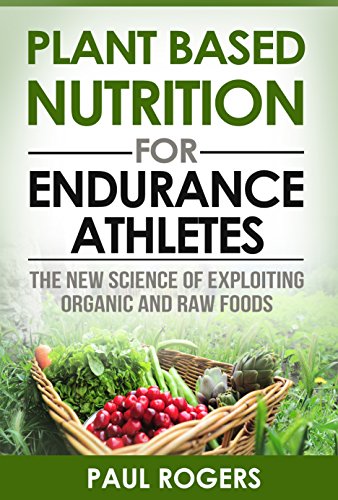
The New Science of Exploiting Organic and Raw Foods (The Science of Nutrition Book 1
- Language : English
- File size : 1997 KB
- Word Wise : Enabled
- Publication date : March 29, 2015
- Print length : 35 pages
Vegan Active Protein Powder
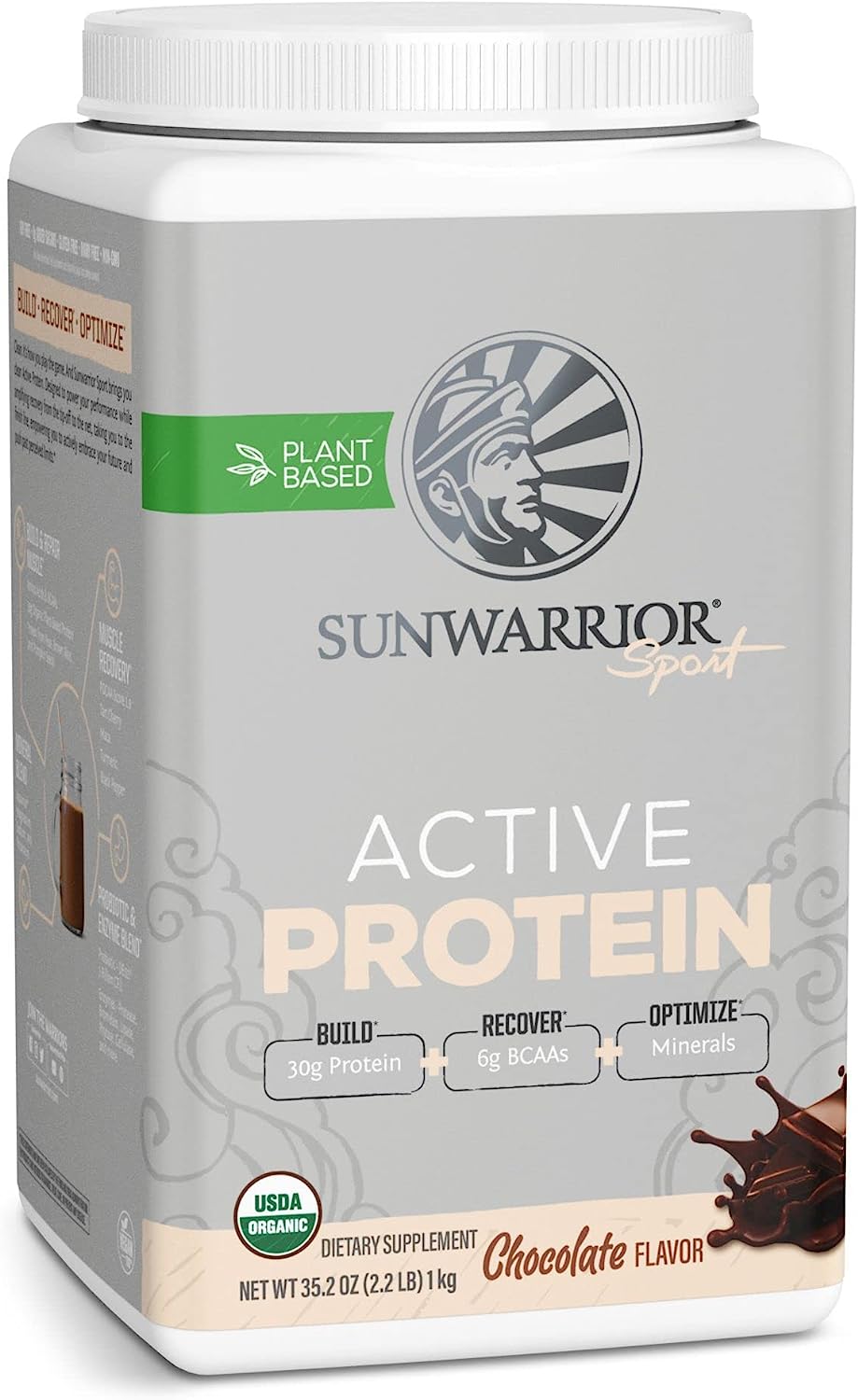
Plant Based Protein Powder Post Workout Recovery Drink for Athletes
- Brand: Sunwarrior
- Flavor: Vanilla, Chocolate
- Item Weight: 6 Grams
- Recommended: Post-Workout
- Number of Items: 1
FAQ
The best vegan sports nutrition consists of a well-rounded plant-based diet that provides essential nutrients for athletic performance. A vegan athlete should focus on consuming adequate amounts of protein, healthy fats, carbohydrates, vitamins, and minerals. Plant-based protein sources like tofu, tempeh, legumes, and quinoa are excellent choices. Healthy fats can be obtained from sources like avocados, nuts, and seeds. Carbohydrates from whole grains, fruits, and vegetables provide energy for workouts. Important nutrients such as iron, calcium, and vitamin B12 should also be included through foods or supplements. Lastly, staying hydrated with water and electrolyte-rich beverages is crucial for optimal athletic performance.
Vegan elite athletes follow a plant-based diet that focuses on nutrient-dense foods to fuel their performance. Their diet typically includes a variety of plant-based protein sources such as tofu, tempeh, legumes, and plant-based protein powders. They consume ample amounts of whole grains, fruits, and vegetables for carbohydrates, vitamins, and minerals. Healthy fats from sources like avocados, nuts, and seeds are also included. To meet specific nutrient needs, they may incorporate fortified foods or supplements for nutrients like vitamin B12, iron, and calcium. Hydration is prioritized, with athletes drinking plenty of water and electrolyte-rich beverages. Overall, their diet emphasizes balance, diversity, and proper nutrition to support optimal athletic performance.
Vegan athletes may benefit from supplementing with BCAAs (branched-chain amino acids) to support their athletic performance and recovery. BCAAs, which include leucine, isoleucine, and valine, are essential amino acids that play a key role in muscle protein synthesis and reducing muscle soreness. While plant-based diets can provide adequate protein, some vegan athletes choose to supplement with BCAAs to ensure they are meeting their specific amino acid needs. However, it’s important to note that individual requirements may vary, and consulting with a healthcare professional or registered dietitian is recommended to determine if BCAA supplementation is necessary for an individual vegan athlete.
Table of contents
Contents
- Understanding Organic Sports Nutrition:
- B. The benefits of organic food for athletes:
- Conclusion:
- FAQ
- Table of contents
